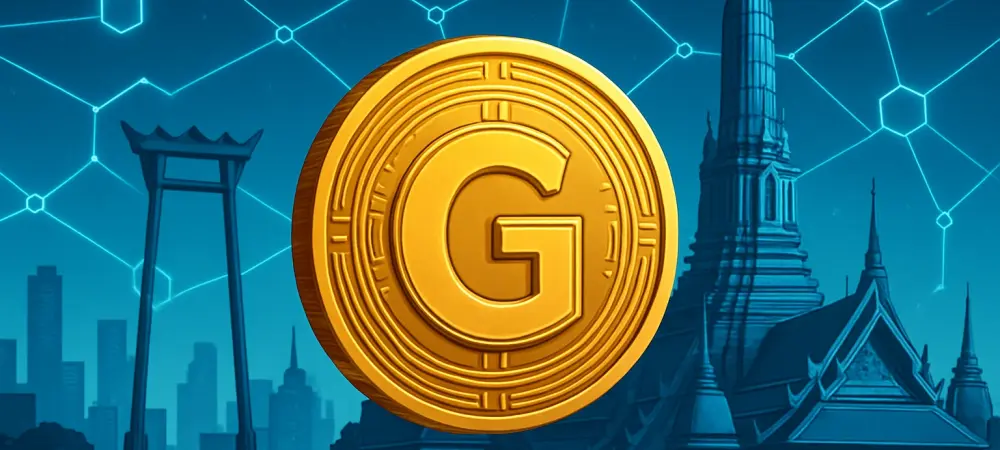I’m thrilled to sit down with a leading expert in blockchain technology and cryptocurrency, who has deep insights into the evolving digital asset landscape in Thailand. With a wealth of experience in the industry, our guest today offers a unique perspective on groundbreaking initiatives like the Thailand G-Token project and the country’s progressive stance on crypto policies. In this conversation, we’ll explore how tokenized government bonds are opening new doors for investors, the role of international exchanges in these innovations, and Thailand’s broader vision for integrating blockchain into its financial ecosystem.
How did the Thailand G-Token initiative come about, and what’s its core purpose?
The Thailand G-Token initiative is a pioneering effort by the Ministry of Finance to issue the world’s first publicly offered tokenized government bond. It’s a bold step toward modernizing financial instruments by leveraging blockchain technology. The core purpose is to democratize access to sovereign debt, particularly for retail investors who traditionally face barriers in participating in such markets. By tokenizing these bonds, the initiative creates a more inclusive and efficient system for investment.
What sets the G-Token initiative apart from other government bond programs around the world?
What makes G-Token truly unique is its integration with blockchain and its availability through digital asset exchanges. Unlike traditional bond programs that often involve complex intermediaries and limited access, this initiative streamlines the process with transparency and security inherent to blockchain. It’s also the first of its kind to partner with an international crypto exchange, broadening its reach beyond domestic markets and setting a precedent for future tokenized financial products globally.
Can you walk us through the process of how retail investors will benefit from this program?
Absolutely. The G-Token initiative lowers the entry barriers for retail investors by allowing them to purchase fractionalized portions of government bonds through a digital platform. This means you don’t need large capital to invest in sovereign debt. The use of blockchain ensures that transactions are transparent and secure, while the digital exchange interface makes subscribing and redeeming these tokens straightforward. It’s about empowering everyday investors with opportunities that were once reserved for institutional players.
How did an international exchange become a key player in this Thai government project?
It’s a testament to the growing trust in digital asset platforms and their ability to operate within strict regulatory frameworks. The exchange was selected due to its established presence in Thailand and its commitment to compliance with local laws. This partnership reflects a strategic alignment with Thailand’s vision to integrate blockchain into mainstream finance, and the exchange’s global expertise adds significant value to the initiative’s scalability and credibility.
What specific responsibilities does the exchange have within the G-Token consortium?
The exchange plays a critical role in facilitating the operational aspects of the initiative. Through its local arm in Thailand, it handles subscriptions and redemptions of the tokenized bonds, ensuring a seamless user experience for investors. There’s also a long-term vision to potentially list these bonds on its global platform, pending regulatory approval, which could further expand access to international investors.
Who else is involved in this initiative, and how do these partnerships function?
The consortium includes notable Thai entities like XSpring Digital, SIX Network, and Krungthai XSpring. Each partner brings specialized expertise to the table—whether it’s in blockchain infrastructure, digital asset solutions, or financial services. The collaboration is highly synergistic, with each entity focusing on different aspects of the project, from technology development to regulatory compliance, ensuring a robust and well-rounded implementation of the G-Token program.
What are some of the major hurdles this initiative is facing at the moment?
Like any innovative project in the blockchain space, the G-Token initiative faces challenges related to security and regulation. Cybersecurity is a top concern, given the digital nature of tokenized assets, so there’s a strong focus on building robust defenses against potential threats. Additionally, ensuring compliance with anti-money laundering (AML) and know-your-customer (KYC) requirements in a decentralized environment is complex but essential for gaining regulatory trust and protecting investors.
How does this project align with Thailand’s larger ambitions for blockchain and cryptocurrency adoption?
The G-Token initiative is a key piece of Thailand’s broader strategy to position itself as a leader in digital asset innovation. The country is actively refining its crypto policies to attract global firms and foster a supportive environment for blockchain technology. This project, alongside others like TouristDigiPay, demonstrates Thailand’s commitment to integrating digital assets into everyday financial systems, from government bonds to tourism spending, while maintaining a clear legal and tax framework.
Speaking of TouristDigiPay, can you shed some light on what this program entails and its impact?
TouristDigiPay is an exciting national crypto sandbox launched by Thailand to allow foreign tourists to convert their digital assets into Thai baht for spending during their visits. It’s designed to make Thailand a crypto-friendly destination by enabling seamless transactions through licensed digital asset operators. Overseen by multiple regulatory bodies, including the Ministry of Finance and the Securities and Exchange Commission, it ensures security and compliance, boosting confidence among users and supporting the tourism sector’s digital transformation.
Looking ahead, what is your forecast for the future of blockchain-based financial initiatives in Thailand?
I’m incredibly optimistic about Thailand’s trajectory. With initiatives like G-Token and TouristDigiPay already underway, and plans for blockchain-based securities trading platforms in the pipeline, Thailand is carving out a leading role in the global fintech space. I foresee a future where blockchain becomes a cornerstone of the country’s financial infrastructure, driving efficiency, transparency, and inclusivity. The government’s proactive approach to regulation and innovation will likely continue to attract international partnerships, further solidifying Thailand as a hub for digital asset advancements.

